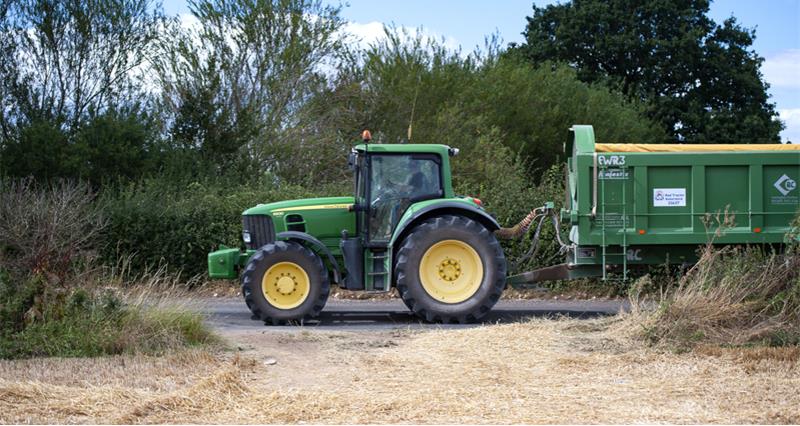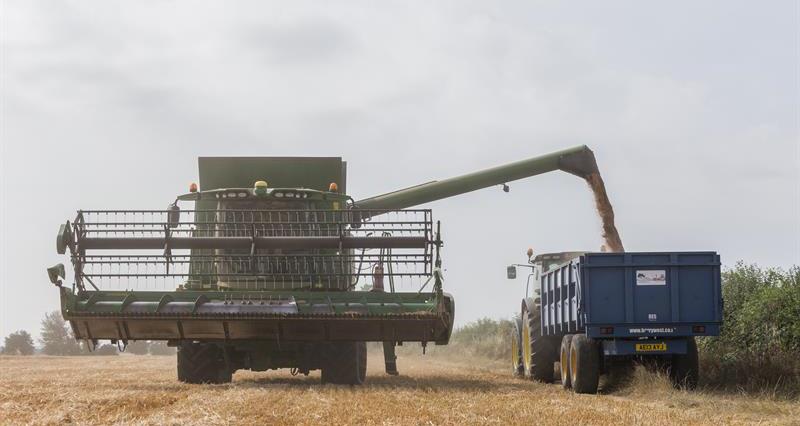What businesses may require a HGV or PSV operator's licence?
Businesses which use vehicles, including tractor/trailer combinations, with a maximum authorised mass above 3.5 tonnes to move goods of any description within Great Britain, require an operator’s licence, unless an exemption applies.
There are a number of reasons why a vehicle owner may be exempt from needing an operator's licence.
Find out what the main exemptions are for related to farming businesses in our goods vehicle operator licensing business guide under 'What are the exemptions to having to hold an O licence?'.
You can apply for a HGV or PSV operators licence online at: Apply for a vehicle operator licence | GOV.UK
Traffic Commissioners
The traffic commissioners are an non-governmental public body responsible for the licensing and regulation of those who operate HGVs (heavy goods vehicles) or PSVs (public service vehicles) in Great Britain.
They ensure the safe and proper use of goods vehicles, fair competition through a consistent application of the rules, and protect the environment around operating centres.
What are the requirements to apply for an operator's licence?
All applicants for an operator’s licence must demonstrate they:
- are fit to hold a licence, taking into account any relevant convictions
- have sufficient financial resources to ensure that vehicles can be properly maintained
- have adequate facilities or arrangements for the maintenance of the goods vehicle
- have the ability to obey the rules, particularly around drivers’ hours, making sure vehicles are not overloaded, ensure that drivers have the correct licence and training.
More information on the requirements to apply for an operator’s licence can be found at: Goods vehicle operator licensing guide | GOV.UK
How often must I renew my operator's licence?
An operator's licence must be renewed every five years in order to remain active. This requires the payment of a continuation fee and a confirmation of the details of the operations to the traffic commissioner.
The licence will remain active, unless this fee is paid, if the licence is surrendered, or if the licence holder operates outside the terms of the licence and the traffic commissioner takes a regulatory action.
Certain changes to a business may require an operator's licence holder to apply for a new licence. Common examples of this involve business entity changes, such as:
- When a business changes from a sole trader to a limited company
- When a licence is held by a partnership and there is a change in the partnership structure.
What can happen if I do not keep to the terms of my licence?
If the holder of an operating licence does not keep to the terms of their licence, the traffic commissioner may decide to ask the operator to appear before a public inquiry.
This is a public, formal tribunal hearing where the traffic commissioner will hear evidence on how the operator has not remained complaint with their licence terms and decide on whether they can trust the operator to comply in the future.
Depending on the case at hand, the traffic commissioner may decide to take action against a licence holder. This can include suspension, revocation and disqualification.
More information on the public enquiry process can be found online at: A guide to public inquiries | GOV.UK
How can I ensure that I stay compliant with my operator's licence?
There are a number of ways that you can ensure that you stay compliant with the terms of your operator's licence. These include:
- Ensure your goods vehicles are regularly and thoroughly maintained by professional engineers, supported by at least 15 months of maintenance records.
- Complete daily checks on your goods vehicles, ensuring any defects affecting roadworthiness are completed quickly and that the vehicle is not returned to the road until it is completed.
- Do not travel the goods vehicle overweight.
- Comply with other transport and highways legislation around the movement of goods.
- Do not contravene drivers’ hours regulations.
- Do not contravene licence requirements.
You can find further guidance on how to keep your vehicles compliant with the terms of your operator's licence on the links below:
- Safe vehicle – Work Right to keep Britain safe campaign
- Keeping commercial vehicles safe to drive (roadworthy) | GOV.UK
- Drivers’ hours and tachographs: goods vehicles – goods vehicles in Great Britain and Europe | GOV.UK
- Requirements for the Driver Certificate of Professional Competence (CPC) | GOV.UK
- Commercial vehicle safety and maintenance | GOV.UK
- Guide to lorry types and weights | GOV.UK


